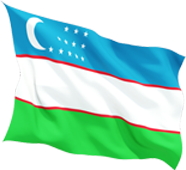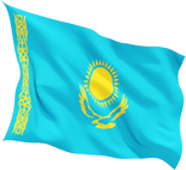Corruption has a comprehensive negative impact on society, affecting the quality of life, increasing social inequality, undermining trust in state institutions, contributing to the growth of crime, demoralizing society and hindering the implementation of necessary reforms. The fight against corruption requires a comprehensive approach, including legal, institutional and educational measures.
That is why, upon taking office as President of Uzbekistan in January 2017, ShavkatMirziyoyev first initiated the adoption of the Law “On Combating Corruption”, according to which overcoming corruption is defined as one of the main directions of state policy.
Along with this, Sh. Mirziyoyev, at the ceremony of awarding the high International Prize in the field of combating corruption, which took place this year in Tashkent, announced the development and implementation of the National Strategy for Combating Corruption until 2030.
As noted, the document will pay special attention to further ensuring transparency of activities and increasing accountability of government agencies, improving the open data system, strengthening the legal framework and institutional mechanisms in the field of combating corruption.
In addition, representatives of scientific organizations and higher education institutions, as well as independent experts, have been granted the right to conduct scientific and independent anti-corruption examination of regulatory legal acts and their drafts.
The strategy “Uzbekistan-2030” defines the fight against corruption as one of the most important priorities of the state authorities. This program document pays special attention to the strict implementation of a set of tasks to improve the efficiency of the system for eliminating corruption factors and continue to form an uncompromising attitude towards corruption in society.
It should be emphasizedthat over the past seven years – 2016-2023 a number of fundamental reforms in the field of combating corruption have been carried out in Uzbekistan.
Firstly, more than 90 regulatory legal acts aimed at forming an anti-corruption policy and increasing its effectiveness have been adopted and are being implemented.
In general, today in Uzbekistan a regulatory framework for combating corruption has been formed, a solid institutional basis (a symbiosis of preventive and criminal law measures) has been created, including new anti-corruption instruments.
Secondly, in order to improve the institutional framework for combating corruption, the following measures are being taken:
– In 2017, the Republican Interdepartmental Commission on Combating Corruption was established, and in 2019 – the Agency for the Development of Public Service;
– A new body, the Anti-Corruption Agency, was created to implement state policy, aimed at preventing and combating corruption;
– The National Council of the Republic of Uzbekistan on Combating Corruption and its Territorial Councils are functioning;
– In 2020, the Supreme Council of Judges of the Republic of Uzbekistan was created, the system of selection and appointment of judges was improved. As part of increasing the effectiveness of corruption prevention in the judicial system, the Judicial Inspectorate for Ensuring the Immunity of Judges and Preventing Corruption was created.
In 2020, committees on combating corruption and judicial and legal issues were created in the chambers of the OliyMajlis of the Republic of Uzbekistan;
– Work continues to coordinate the activities of ministries and departments in the fight against corruption; organizing the implementation and effective functioning of the internal anti-corruption control system (“compliance control”) in all government and business management bodies.
Thirdly, the Committees of the Senate of the OliyMajlis and the Legislative Chamber carried out work on parliamentary control in the field of combating corruption.
The chambers of the country’s parliament reviewed and approved more than 10 draft regulatory legal acts in the field of combating corruption (on conflicts of interest, anti-corruption expertise of regulatory legal documents, etc.).
As part of parliamentary control, the reports of the Senate Committee of the OliyMajlis on Judicial Law and Anti-Corruption and the Anti-Corruption Agency on the work carried out by officials of state bodies in the regions were heard, based on the results of which a decision was made by local Councils.
Within the framework of the Law “On Combating Corruption”, reports were heard from the leadership of the State Tax Committee on the implementation of the “Sphere Free from Corruption” projects, as well as the heads of the Ministries of Health and Higher and Secondary Education.
Fourthly, the principles of openness and transparency in the activities of government agencies are of particular importance. In this regard, a number of measures of national importance are being implemented.
Thus, the Anti-Corruption Agency of the Republic of Uzbekistan analyzed the shortcomings in ensuring the openness of government agencies and organizations in 2022 and formed the “Openness Index” based on target indicators.
The index covers the activities of 86 ministries, departments and institutions, the openness of which was assessed on a scale from 0 to 100 points. According to the assessment, the activities of 15 government agencies were included in the “green” category (71-100 points), the activities of 44 organizations received a “yellow” rating (55-71 points) and several organizations were classified as “red” (below 55 points).
The Openness Index assessment system has been fully digitized, and the general public has been given the opportunity to track the efficiency and effectiveness of government agencies in real time through the Open. Index platform.
In order to reduce the “human factor”, work has been launched to widely introduce ICT in all sectors. In particular, within the framework of the Digital Uzbekistan 2030 strategy, 369 projects related to the digitalization of the activities of government and business administration bodies have been implemented.
In the social sphere, an “electronic work book”, an “electronic health care system”, an “information system for managing the higher education process” (HEMIS), an “electronic diary system” in comprehensive schools, and a “Unified Register of Social Protection” system have been created, ensuring transparency in the distribution of benefits and financial assistance.
The “Sphere without Corruption” projects have been initiated in the field of construction, public procurement, education, healthcare and banking, as well as “Territory without Corruption” and “Open and Transparent Territory”.
Fifth, work continues to increase legal awareness and legal culture of the population, to form an intolerant attitude towards corruption in society:
– during 2023, 29.9 thousand civil servants underwent special training in the fight against corruption;
Large-scale reforms to combat corruption have already begun to yield results. The world community recognizes the effectiveness of the anti-corruption measures taken in Uzbekistan. There is an increase in the indicators in the following international ratings:
– in the Corruption Perceptions Index rating of Transparency International in 2023, Uzbekistan took 121st place among 180 countries, moving up five positions compared to 2022;
For information. In 2021, Uzbekistan was in 140th place, in 2020 – in 146th. For 2019, the country ranked 153rd, in 2017 – 157th, and in 2016 – 156th.
– The Republic of Uzbekistan has risen to 30th place among 195 countries in the Open Data Inventory (ODIN) rating with 70 points and retained 1st place in Central Asia. This is reported in the Open Data Watch report;
– the Trace Matrix bribery matrix (+1 point) has risen from 131st place in 2022 to 130th with 58 points in 2023. (It is estimated from 1 to 100 points, 1 point is the most positive);
– in the Global Data Barometer rating for 2022, Uzbekistan scored 32 points and took 58th place in the world;
– in the Open Data Inception rating in 2022, Uzbekistan took 4th place in the world in terms of the number of open data sources among countries.
The principle of the rule of law is strictly ensured in the process of bringing any government officials (khokims, prosecutors, heads of various government agencies) to justice for corruption crimes.
Based on the results of remote monitoring of compliance with the requirements of the legislation on public procurement, 110 submissions were sent to ministries and departments to eliminate the causes and conditions of corruption violations in the declared purchases.
At the same time, Uzbekistan pays special attention to strengthening international cooperation in the fight against corruption. In particular, within the framework of international cooperation in the fight against corruption, relations with UNDP, UNODC, the World Bank, OSCE, the German Society for International Cooperation, the Regional Dialogue International Non-Governmental Organization and a number of foreign countries, such as the USA, France, Slovenia, Finland, Estonia, Malaysia, Kazakhstan and others, have been further developed.
An Action Plan for the implementation of the Memorandum of Cooperation between the Anti-Corruption Agency of Uzbekistan and the Anti-Corruption Agency of France has been developed and approved.
The Anti-Corruption Agency, together with the OSCE, is implementing the second stage of the project “Assistance in the Fight against Corruption
in Uzbekistan”. Memorandums of understanding were signed between the Department of Administrative Oversight and Transparency of the State of Qatar, the Center for the Rule of Law and the Fight against Corruption, the Korean Anti-Corruption and Civil Rights Commission, and the Administrative Oversight Authority of the Arab Republic of Egypt.
In general, the reforms implemented in the fight against corruption are of particular importance, since they are aimed at the timely elimination of the causes, conditions and consequences of corruption. To further strengthen the anti-corruption policy of the Republic of Uzbekistan, the effective implementation of the following tasks of the state strategy (the Development Strategy of the New Uzbekistan for 2022-2026 and the Strategy “Uzbekistan-2030”) is separately noted:
– gradual implementation of the system of income and property declaration of civil servants;
– creation of effective mechanisms to prevent conflicts of interest in the civil service, ensuring openness and expanding public participation in anti-corruption activities.
– introduction of modern information technologies, including artificial intelligence, in the fight against corruption;
– achieving at least the 50th position in the Corruption Perceptions Index announced by the international organization “Transparency International”;
– establishing cooperation with civil society institutions in combating corruption, supporting the implementation of public control;
– strengthening systemic preventive measures in the practice of combating corruption;
– ensuring the development of 100 percent of regulatory legal acts based on the principle of “legislation free from corruption”;
– implementation of a system of continuous improvement of knowledge of the population and civil servants in the field of combating corruption.
The latest achievement of Uzbekistan in the field of combating corruption was the adoption of the Law “On Conflict of Interest”. This law was adopted by the Legislative Chamber of the OliyMajlis of the Republic of Uzbekistan on October 25, 2022, approved by the upper house of parliament, the Senate, on June 1, 2023, and signed by the President of Uzbekistan on June 5, 2024. But it will officially come into force only on December 6 of this year.
I would like to conclude with a vision of the problems of the fight against corruption, which was presented at a training in Tashkent by Rachel Cohen, a member of the board of directors of the Boston Globe newspaper. According to her, the first step towards developing society’s immunity to corruption is to cultivate a culture of rejection of this phenomenon. The speaker recalled the legendary phrase written in the oldest newspaper in Massachusetts, The Boston Globe, published since 1872, in 1913 by Judge Louis Brandeis: “The sun’s rays are the best cure for corruption.” In sunny Uzbekistan there are enough sun rays to use their light to prevent the global evil – corruption.
M.Rakhimov
Chief Researcher of the Institute for Strategic and Regional Studies
under the President of the Republic of Uzbekistan












